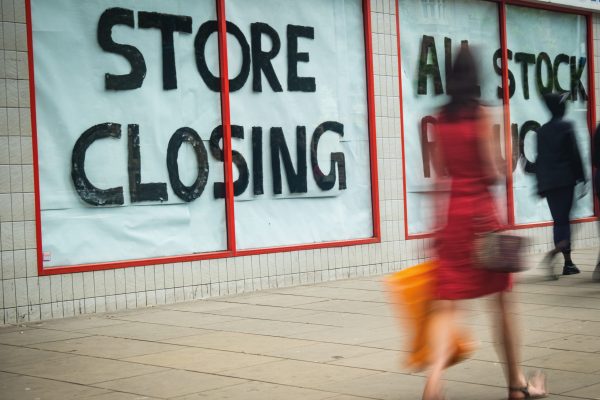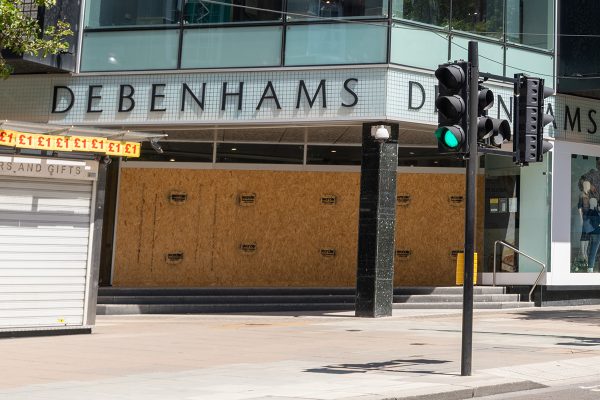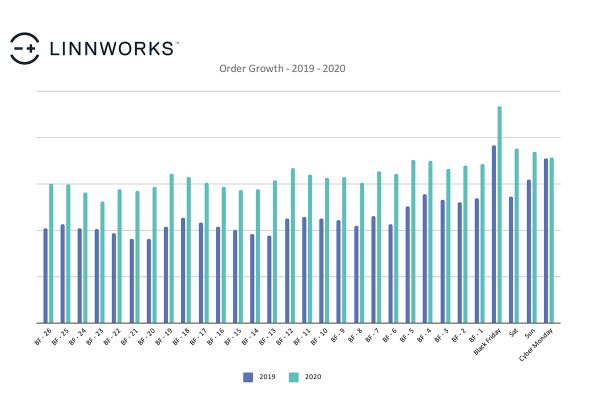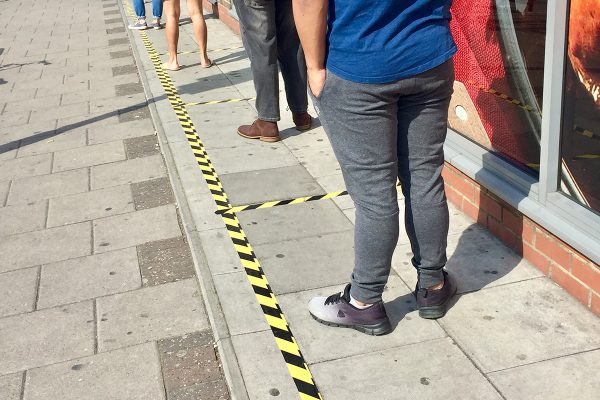 Today’s the day that Mary Portas’ long awaited government commissioned review of the high street has been published. You can read The Portas Review in full on the Department for Business Innovation & Skills website.
Today’s the day that Mary Portas’ long awaited government commissioned review of the high street has been published. You can read The Portas Review in full on the Department for Business Innovation & Skills website.
The purpose of The Portas Review was to identify what the Government, local authorities, businesses and others can do together to promote the development of new models of prosperous and diverse high streets. In brief the review’s focus is on putting the heart back into the centre of our high streets, re-imagined as exciting social hubs for shopping, learning socialising and having fun.
The main recommendations of The Portas Review are to:
- Get town centres running like businesses: by strengthening the management of high streets through new ‘Town Teams’, developing the Business Improvement District model and encouraging new markets
- Get the basics right to allow businesses to flourish: by looking at how the business rate system could better support small businesses and independent retailers, encouraging affordable town centre car parking and looking at further opportunities to remove red tape on the high street
- Level the playing field: by ensuring a strong town centre first approach in planning and encouraging large retailers to show their support for high streets
- Define landlords’ roles and responsibilities: by looking at disincentives for landlords leaving properties vacant and empowering local authorities to step in when landlords are negligent; and
- Give communities a greater say: by greater inclusion of the high street in neighbourhood planning and encouraging innovative community uses of empty high street spaces.
One recommendation immediately of interest to online traders is to make it easier for people to become market traders. Mary suggests that removing unnecessary regulations so that anyone can trade on the high street unless there is a valid reason why not is the way forward and that people with entrepreneurial talent and micro-businesses should have a right to sell on high street markets.
Where I believe The Portas Review falls down (but to be fair Mary has mentioned) is the role the Internet has to play. Mary does emphasise that her review is not about stopping other forms of retail but she doesn’t appear to recognise how technology can support and enhance the High Street
The Portas Review states “new technological developments now mean that the internet is one of the key threats to retail on our high streets. Although internet sales currently account for less than 10% of all retail sales some estimates suggest that e-commerce accounted for nearly half of all retail sales growth in the UK between 2003 and 2010”. What this fails to accept is that many retail stores are already supported by the Internet and simply wouldn’t have survived this far without the income from online activity.
eBay’s reaction was to acknowledge that it’s difficult time for retailers of all sizes, and to welcome any recommendations on how to revive the high street. Angus McCarey, UK Retail Director for eBay pointed out that consumers often choose to mix traditional shopping with browsing online or on their smartphones. He also suggested that making the most of online and mobile shopping can reinvigorate your physical store, for instance by allowing you to clear out of season stock or enable a “Click and Collect” service.
The Portas Review has totally missed how the Internet can work with the high street and in truth Angus and eBay’s comments are unnecessarily weak too. My vision of the future of the high street is much more along the lines of Schuh.
Schuh have a fantastic blended online/offline offering. They allow you to buy online and have delivered to home or delivered to your local high street Schuh store for collection in your lunch hour. That’s an example of the Internet not killing the high street but actually supporting the High Street and driving online sales into an offline retail experience. The blending of online and offline technology to drive shoppers to the High Street is missing from the report.
The Portas Review also makes no mention of new Internet technologies coming down the line. Where’s the mention of browsing the Internet for a product with a choice of buying online or being shown offline inventory available for purchase in a store close to your current location? The report makes no mention of making offline inventory available online to drive traffic via properties such as eBay’s Milo.
There’s not even a mention in the report of encouraging High Street stores to offer WiFi or provide Internet Kiosks so that if you’ve found a product you like but it’s out of stock in your size you can instantly order it from another branch of the retailer simply by scanning the bar code. In fact it’s worse than that, there’s not even a suggestion of including QR codes on labels to enable buyers to find inventory in their size from other stores.
Whilst the Internet is here to stay it could have a much greater influence over the high street and preserving the high street giving consumers the ability to buy when they want, where they want, how they want. Smartphones are here to stay and it won’t be long before they’re an essential tool for revealing just which shop in the High Street location your in has the product you want available to take away today.
Accepting that the decline of the High Street needs halting and implementing many of the great plans in the Portas report will do much to rescue the High Street in the short term. However using the Internet to drive traffic to the High Street won’t kill the High Street, but it might just save it in the long term.
There’s little point in trying to ignore ecommerce while trying to rescue the High Street. Lets use ecommerce to work in conjunction with the High Street. Hopefully once The Portas Review recommendations are implemented the government will see beyond the Internet being in competition to the High Street and recognise that soon there will be no such thing as online and offline commerce. There will simply be “commerce”.









11 Responses
Well the BID management in our area is a pile of you know what!
Sadly our business is based in a warehouse in a town centre so I have the pleasure of paying another £100 a month towards it, which helps my business 0%.
The latest idea is to advertise the town centre, in the town centre!!!! That will have them flocking in, idiots!
I would of prefered the money went towards helping smaller business open shops…I would love to open one but there is zero help to do it!
Why do ebay feel they need to react to every report about commerce?
Amazon don’t. In fact I cannot think of any other online marketplace that does.
Ebay should sharpen their overheads, get rid of the dead weight, and cut their fees. After all the report said that help could be given to shops through subsidies and free parking and reduced rent and rates.
Seems to me like eBay could do the same to help the online small seller who may be struggling. If they did this then their comments would have more weight but of course they won’t and they don’t.
If I had the money I would have a high street shop, sell via eBay and Amazon as well as my website, so I can totally agree with your comments. Retail is retail so it doesn’t matter which channel you sell on as long as you are selling.
I do think that retail will change over the next few years but I see the demise of the big out of town retail parks. As I was told recently, Bluewater is one of the biggest shopping centrers in Europe with one of the highest rents in Europe.
The question I’m putting forward is can the retailers in these big retail parks afford to pay their rents or will they go bust/sell else where? And what happens to the retail parks as a result?
As simple as it sounds I think introducing free parking to the high street venues would be a great benefit. The best and nearest car park to my own town centre cost around £3-4 each time I visit. The ammount itself isn’t a huge problem. However I rarely carry any cash with me and I usually pay with debit card so its a hassle to get change to pay. Also when you add in fuel costs a simple visit to the shops could cost £10 before you even buy a product.
The world is certainly going towards online. However, the mix of online and offline is advantageous. There are still people out there who loves shopping with the feel of product. It would be ideal to design a strategy with online and offline mix and that the rent is either subsidised by online sales or by the concerned authority. The way things are going we will end of nowhere.
We need to keep the shops going since they are the place where you can be actually be social not these Social Media Channels which “commodifies” the human interaction!
Truro is my nearest City. On a Sunday there are flocks of Council Traffic Wardens searching the Streets for vehicles to hit with penalty notices(even Store Holders trying to move stock in or out of their stores). Its almost as if the “Official” Council Policy is to close down the City Centre.
Yet the Council will declare through Crocodile Tears that their Policy is to Support the City Centre.
The Council is trying to reduce its subsidy for the Cornish Bus Network. There is a belief that they intend to close down completely the Sunday Service Network. Which will reduce the numbers who can go shopping in the City Centre on a Sunday.
Car Parks are expensive and expected to get even more expensive.
So like Warren I would have liked to have a High Street Shop(years ago I got all the figures and did a rough business plan). It did not make economic sense. Why? Well it was obvious that the Council was determined to extract every last penny out of the Shop Keepers and if they could extract the very last penny leaving the Shop Keepers destitute then they would.
The High Street has to have a future. After all we cannot allow our towns and cities to become like the Polo Mint with a big hole in the centre. There has to be a living and lively centre. But this will only happen if the Councils are sympathetic and stop loading costs onto the High Street Shops.
Lets take Deliveries. Almost every town has deliveries to shops before and after certain times. Often such as before 10am and after 4pm. Because this requires the shops to have staff on duty before and after normal times, because if the shop opens at 9am it leaves just an hour for morning deliveries. So they probably have to have staff on duty from 7am increasing staff costs. And the truck drivers are limited so it increases costs. Yet the Council probably does not even realise(or doesn’t care).
The high streets biggest problem is local councils using car owners as a source of revenue. Its the same with the police, instead of solving crime lets fine motorists for speeding.
But as our living standards are set to fall over the coming years, car use will probably go down. As a result of this out of town retail parks look like losing out to the high street and the internet to me.
Car parking is free in our local town centre and it is a total s*** hole so that won’t really solve anything.
I think reasonable car parking charges should be in place as long as that money is put back into the town centre.